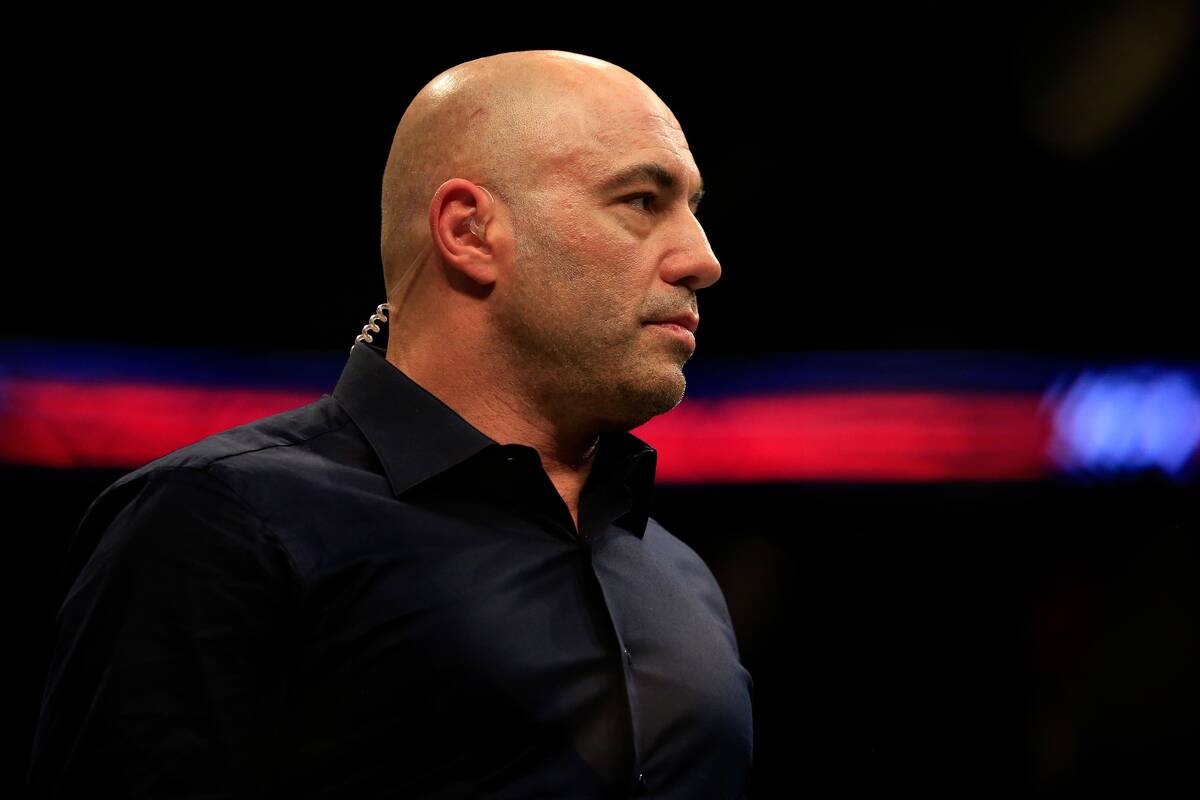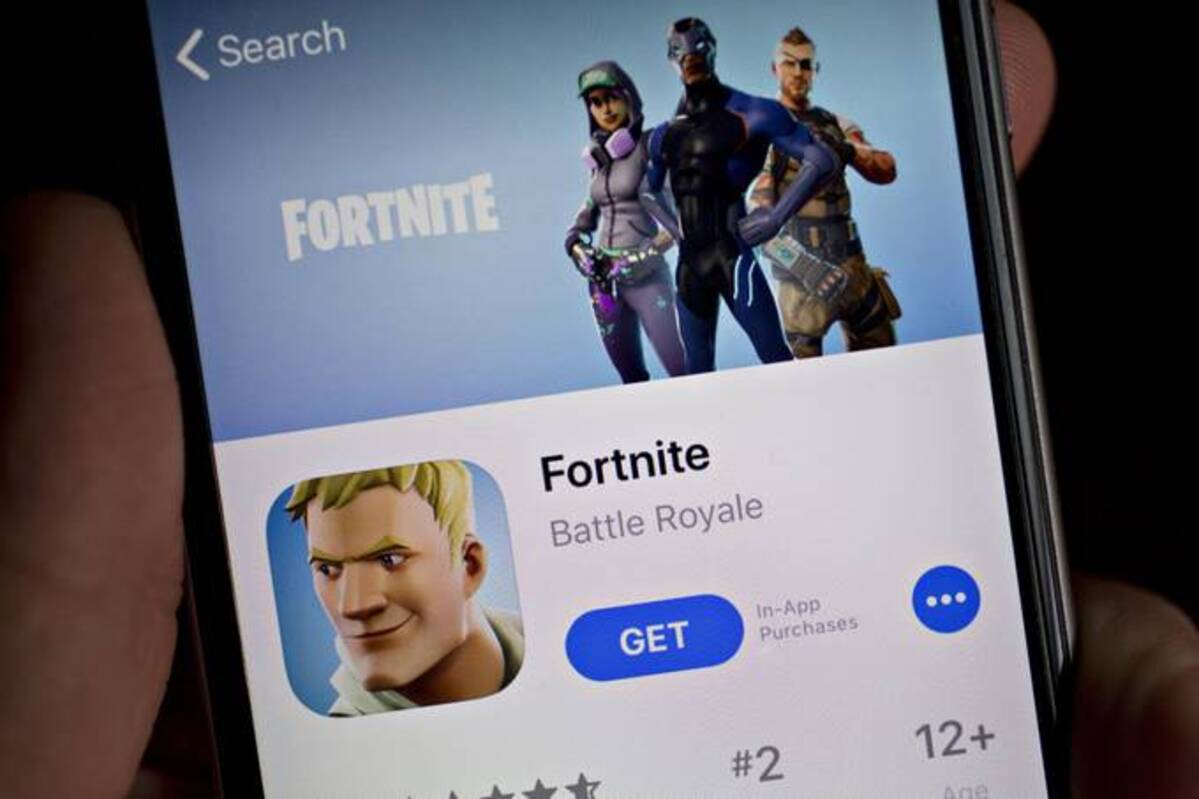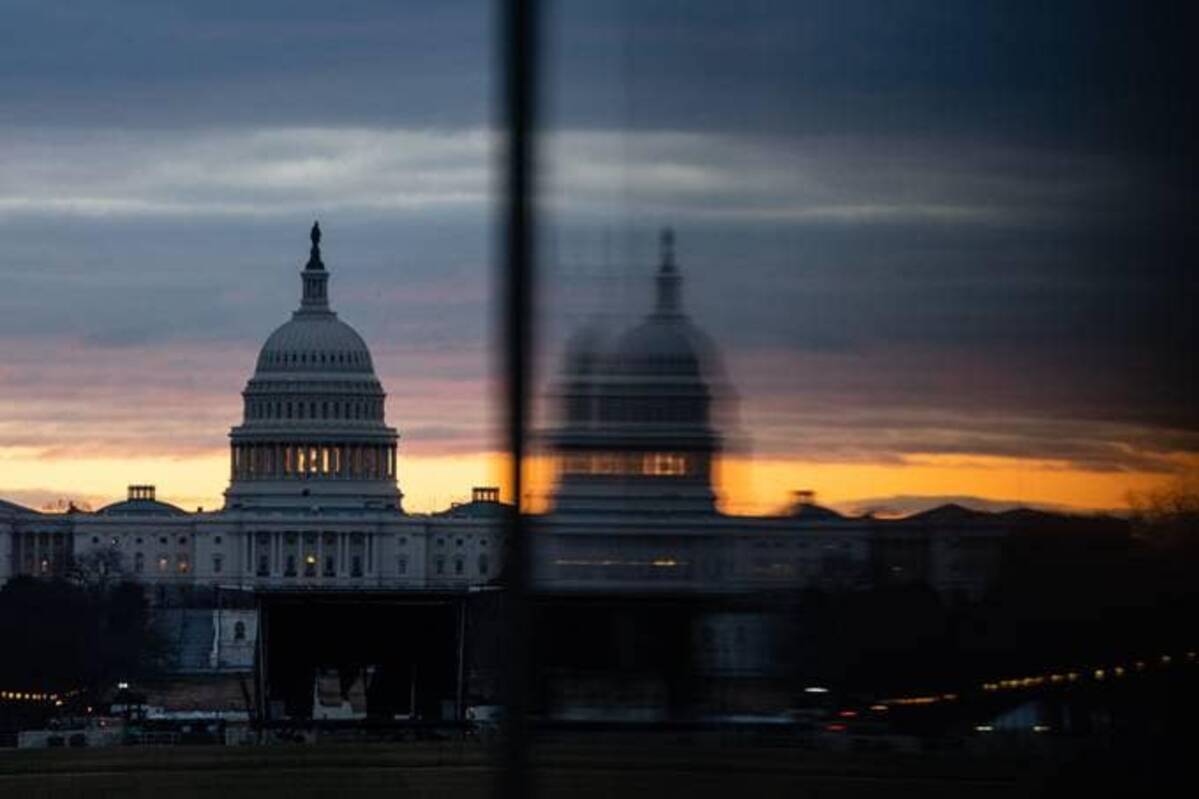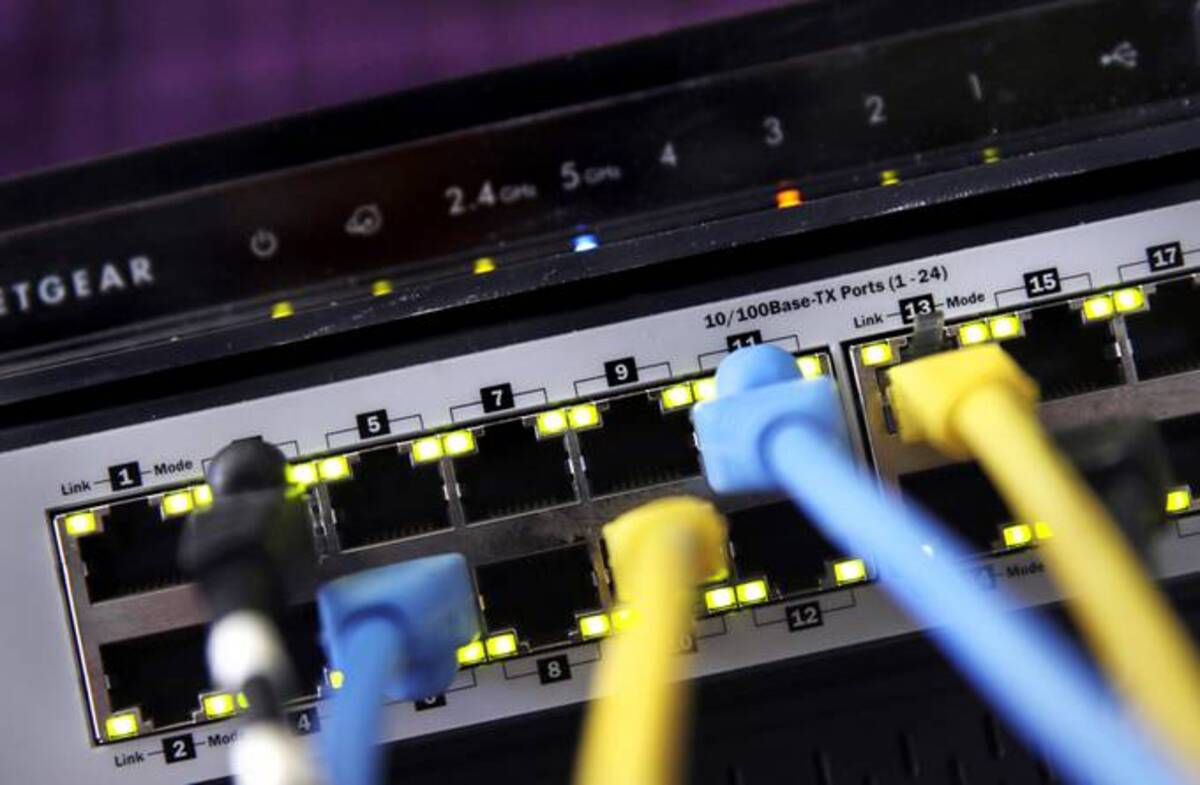| Happy Monday! We'd like to submit this tweet into the self-deprecating humor hall of fame. Below: The Justice Department weighs in on the Apple-Epic court fight, and net neutrality advocates score a major victory. First: | The misinformation reckoning hits Spotify |  Spotify is facing mounting calls to drop podcast host Joe Rogan. (Alex Trautwig/Getty Images) | | | Spotify is the latest platform to become ensnared by accusations it spreads coronavirus misinformation, drawing the scrutiny that has long focused on social networks like Facebook and Twitter to the popular streaming site. The controversy highlights how the debate over how false and misleading medical information spreads is shifting to focus on a broader array of companies, particularly as social media companies deplatform more purveyors of misinformation. A slew of prominent musicians including Neil Young have demanded their music be taken off Spotify in protest of the platform continuing to carry Joe Rogan, who has hosted conspiracy theorists and spread medical and vaccine misinformation on his chart-topping podcast. In response, Spotify CEO Daniel Ek announced Sunday that the company would be publishing its internal content policies — which had already leaked and been reported by the Verge — and that it planned to add "content advisory" labels to podcasts that discuss covid-19. "Based on the feedback over the last several weeks, it's become clear to me that we have an obligation to do more to provide balance and access to widely-accepted information from the medical and scientific communities guiding us through this unprecedented time," Ek wrote. Spotify's rules on misinformation and its plans to address concerns quickly drew rebukes and comparisons to similar moves by platforms like Facebook and Twitter. | | The activist group Sleeping Giants, which has led digital boycotts against prominent conservative figures, criticized the announcement as insufficient. | | Joan Donovan, research director of the Shorenstein Center, said Spotify publishing its policies "doesn't address the root of the criticism, which is not about the platform policies, but about the company's choice to take on a controversial podcaster, like Rogan." "The more Spotify fails to confront the actual PR crisis of Rogan himself, by writing platitudes about applying rules to all creators equally, their customers will continue to demand corporate accountability," she added. Donovan, who Democratic lawmakers once urged the White House to appoint as a top adviser on covid-19 misinformation, said the controversy shows that public discussion about how false and misleading information spreads online is getting more complex. "There is not a lot of research on podcasts or … podcast audiences," Donovan told me. "The degree to which [public pressure] can impact what a company like Spotify does to amend their policies or menu of options will certainly determine how other content broadcasting platforms operate in the future." The public pressure Spotify is facing isn't the only data point that suggests more attention is being focused on digital platforms beyond YouTube, Facebook and Twitter. President Biden made waves last year by accusing platforms like Facebook of "killing people" for enabling the spread of covid-19 misinformation. But he's since notably toned down that rhetoric and emphasized the role of other players, including in television. While Biden prominently walked back his initial blistering criticism of tech companies, he has also more quietly widened the focus of his rebukes, repeatedly noting the role that broadcasters and television personalities play alongside social media platforms in disseminating falsehoods. In December, Biden said during an address that vaccine hesitancy has "been fueled by dangerous misinformation on cable TV and social media." | | "These companies and personalities are making money by peddling lies and allowing misinformation that can kill their own customers and their own supporters," he said. "It's wrong, it's immoral and I call on the purveyors of these lies and misinformation to stop it." He echoed that sentiment in January, making a "special appeal to social media companies and media outlets" to "deal with the misinformation and disinformation that's on your shows." Congressional Democrats, who for years have hammered the tech giants over claims they enable and amplify misinformation, are also zeroing in on television's role, for one. Before their blockbuster hearing in March on misinformation with the CEOs of Facebook, Google and Twitter, Democrats on the House Energy Committee held a lower-profile session on "disinformation and extremism in the media." The hearing was dominated by partisan sparring, as Republicans accused Democrats of trying to silence right-leaning media figures and outlets. In April, the Senate Commerce Committee convened a hearing about how to promote reliable sources of medical information that focused on "media outlets, including television, radio, and online platforms." Democrats have also zeroed in on more infrequent targets, such as e-commerce giant Amazon, as vectors of misinformation. (Amazon founder Jeff Bezos owns The Washington Post.) Some lawmakers are already dialing up the focus on how Spotify may amplify medical misinformation, but it remains to be seen whether it will become a major trend in Washington. Rep. Jared Huffman (D-Calif.): | | And Spotify is likely to have plenty of defenders in Washington, too. "Our nation was built on freedom of expression," Sen. Marsha Blackburn (R-Tenn.) said in a statement. "It should stay that way." | | |  | Our top tabs | | Dozens of state attorneys general, the Justice Department and others weighed in on the Apple-Epic antitrust battle |  The attorneys general backed "Fortnite" maker Epic in its appeal. (Andrew Harrer/Bloomberg News) | | | A bipartisan group of 35 attorneys general sided with Epic in its appeal of federal judge Yvonne Gonzalez Rogers's ruling that largely sided with Apple. "Apple's conduct has harmed and is harming mobile app developers and millions of citizens," they said in an amicus brief calling on the U.S. Court of Appeals for the 9th Circuit to reverse her order, the Verge's Jay Peters reports. "In the original case, the judge ultimately ruled in favor of Apple in nine of ten counts Epic brought against it, but both Epic and Apple appealed the parts that they lost," Peters writes. The Justice Department also filed a brief in the case, but sided with neither Apple nor Epic. It did, however, criticize Gonzalez Rogers's ruling, arguing that she "committed several legal errors that could imperil effective antitrust enforcement, especially in the digital economy." The Justice Department took aim at her interpretation of antitrust laws, which it said were read "narrowly and wrongly, in ways that would leave many anticompetitive agreements and practices outside their protections." The Electronic Frontier Foundation, Microsoft and some app developers such as Basecamp and Match filed briefs supporting Epic in the case. | Republican Senate candidates hold stock in tech giants despite criticizing them |  Some of the Senate candidates hold hundreds of dollars' worth of stock in major technology companies. (Eric Lee/Bloomberg News) | | | The stock holdings could become a campaign issue, with Democrats and some Republicans criticizing the candidates for holding stock in the same companies they have rebuked and, in some cases, said they'll hold accountable in the Senate, the Hill's Rebecca Klar reports. The candidates include: | - Jane Timken, a Republican from Ohio running for a Senate seat, who holds at least $800,000 in Apple, Facebook and Google through herself and her family. She has called Big Tech "an arm of the Democrat party" and argued that "their immunity privileges must be stripped."
- Jeff Bartos, a Republican from Pennsylvania, who has said that "Big Tech must be reined in," but whose spouse holds at least $200,000 in Google stock. He also holds at least $300,000 in Apple stock through his spouse and a joint account.
| | Spokespeople for Timken and Bartos did not respond to requests for comment from the Hill. Republicans aren't the only ones caught in the crossfire. Val Arkoosh, a Democrat running for a U.S. Senate seat in Pennsylvania, also holds thousands of dollars in stock in Apple, Google, Amazon and Facebook. Arkoosh has called for tech giants to be broken up. Arkoosh campaign spokesperson Rachel Petri told Klar that Arkoosh "supports legislation to bar members of Congress from owning and trading stocks, and if elected, would put her eligible assets into a blind trust." | A federal appeals court upheld a ruling that allows California to enforce net neutrality laws |  It's a significant win for advocates of net neutrality. (Charles Krupa/AP) | | | The 9th Circuit's ruling clears the way for California to enforce its law banning Internet service providers from slowing down or blocking particular websites, Bloomberg Law's Jacklyn Wille reports. It's a major victory for net neutrality advocates as they await a Senate Commerce Committee meeting on Wednesday to discuss the nomination of net neutrality advocate Gigi Sohn to be on the Federal Communications Commission. "The Ninth Circuit case was closely watched by industry groups and policymakers," Wille writes. "Attorneys general in New York, Massachusetts, and 16 other states filed a brief urging the court to uphold the California law as a valid exercise of state police power, while groups including the Telecommunications Industry Association and the Chamber of Commerce argued the law should be rejected as 'anathema to the development of a dynamic, constantly changing industry.' " The plaintiffs in the case — ACA Connects, CTIA, NCTA and USTelecom — told CNBC that they were "disappointed" in the ruling but would "review our options." | | |  | Rant and rave | | | Spotify chief executive Daniel Ek's statement about coronavirus-related content on the platform drew comparisons with Facebook. Bloomberg News's Sarah Frier: | | The Stanford Internet Observatory's Renee DiResta questioned the effectiveness of coronavirus hubs that major tech companies have set up: | | NBC News's Ben Collins previewed what he thought the near future will look like for Spotify and Joe Rogan: | | And musician James Blunt offered an ultimatum: | | |  | Inside the industry | | | |  | Trending | | | |  | Daybook | | - The Brookings Institution hosts an event on ethical use of artificial intelligence today at 11 a.m.
- Samuel A.A. Levine, the director of the FTC's Bureau of Consumer Protection, testifies at a Senate Commerce Committee consumer protection subcommittee hearing on coronavirus fraud and price gouging on Tuesday at 2:30 p.m.
- Commerce Secretary Gina Raimondo testifies at a Senate Appropriations Committee panel's hearing on broadband infrastructure on Tuesday at 2:30 p.m.
- Google parent Alphabet holds an investor call on its earnings on Tuesday at 5 p.m.
- The Senate Commerce Committee considers the nominations of Alvaro Bedoya to be an FTC commissioner and Gigi Sohn to be an FCC commissioner on Wednesday at 10 a.m.
- Facebook parent Meta holds an investor call on its earnings on Wednesday at 5 p.m.
- The House Energy and Commerce Committee's consumer protection committee hosts a hearing on price gouging on Wednesday at 10:30 a.m.
- The Senate Judiciary Committee considers legislation to rein in the dominance of Apple and Google's app stores on Thursday at 9 a.m.
- The House Transportation Committee's aviation subcommittee holds a hearing on 5G technology and aviation security on Thursday at 11 a.m.
| | |  | Before you log off | | | That's all for today — thank you so much for joining us! Make sure to tell others to subscribe to The Technology 202 here. Get in touch with tips, feedback or greetings on Twitter or email. | |










No comments:
Post a Comment